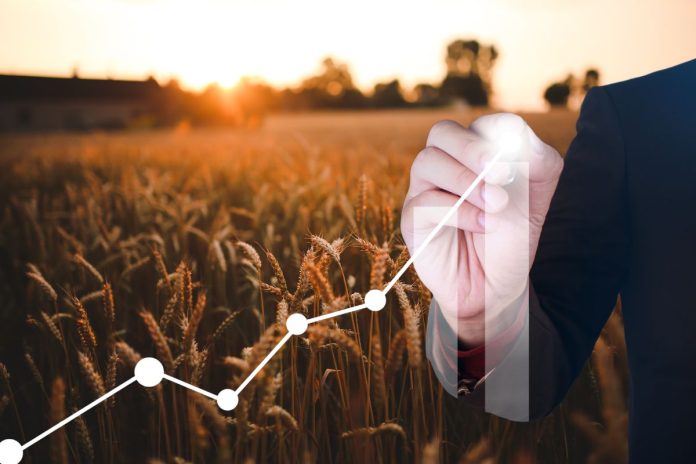Gone are the days where farmers leave their yeilds to the mercy of chance. Farmers can now predict their crop yields with accuracy, identify disease outbreaks before they devastate harvests, and optimize water usage down to the very drop. This isn’t science fiction anymore, this is reality! Predictive analytics reshaping the agricultural sector in a big way. And we are all here for it. Roman Zenon Dawidowicz says predictive analysis is empowering farmers to boost production rates and ensure we get food on our tables at affordable price.
By harnessing the power of data, farmers are transforming from traditional farming into information-driven decision-makers. Roman Zenon Dawidowicz, agriculture market expert, delves deeper into the role of predictive analysis and its importance in Agriculture.
But before we delve into the importance predictive analytics, let’s go into the age-old challenges that have plagued agriculture for generations:
- Unpredictable Mother’s Nature: From unexpected droughts and floods to unforeseen infestations and diseases, farmers have always been at the mercy of nature’s whims. These factors can no doubt greatly impact crop yields and wreak havoc on livelihoods.
- Feast or Famine: Global food security remains a pressing concern. The delicate balance between meeting the consumer’s rising demand for food and optimizing resource use is a constant struggle. The urgent need to ensure there is enough to support the wellbeing of current and future generations calls for immediate action.
- Inadequate Resources: Water scarcity, soil erosion, and nutrient depletion are constant threats to agricultural sustainability. Farmers often have limited resources and need to make the most of what they have.
- The Price is Never Right: Volatile market fluctuations, trade barriers, and unpredictable pricing for crops can leave farmers with razor-thin margin of profits.
These challenges demonstrate that the need for smarter, data-driven approaches to agriculture is more critical than ever.
The Role Of Data InFarming
The agricultural data revolution is transforming the way we grow food. Sensors embedded in the soil provide real-time data on moisture levels, nutrient composition, and even plant health. Weather stations and satellite imagery offer insights into weather patterns, temperature variations, and potential disease outbreaks. Drones equipped with high-resolution cameras capture detailed aerial views of fields, allowing farmers to identify problem areas and assess crop growth at a glance.
This power-packed data feeds provides sophisticated algorithms that unlock the power of predictive analytics. Here are a few ways this technology is making waves:
- Yield Production: Predictive models can analyze historical data on weather, soil conditions, and past planting practices to forecast future crop yields with remarkable accuracy. This allows farmers to make informed decisions about resource allocation, when to plant and crop selection based on predicted conditions.
- Defense Against Disease: Early detection is key to preventing dieases eating up the crops. Predictive analytics can provide insight into dieases outbreaks historical trends and analyze weather patterns. It can also look into specific plant characteristics to identify areas at high risk for infection. This allows farmers to take preventive measures like targeted pesticide application, thereby, minimizing crop losses.
- Address Water Scarcity: Water scarcity is a growing concern, and farmers are under immense pressure to optimize irrigation. Predictive analytics can analyze soil moisture levels, weather forecasts, and crop water needs to create personalised irrigation plans. This ensures that crops receive the exact anount of water needed to flourish.
- Promoting Sustainable Practices: Precision agriculture techniques enabled by data analysis can minimize resource use, reduce reliance on chemical fertilizers and pesticides, and promote more environmentally friendly practices. It can also identify where environmental pollution is high and take necessary precautions to prevent detrimental effects on farming.
- Empowered Farmers: farmers are no more in the dark, thanks to data that empowers farmers with actionable insights, enabling them to make informed decisions that improve their profitability. This also helps build resilience against unforeseen challenges.
- Affordable Food: Increased efficiency and reduced waste throughout the agricultural supply chain means more affordable food available for consumers.
- Food Security for All: By optimizing yields and minimizing losses, predictive analytics can help ensure a stable food supply for a growing global population.
- Roman Zenon Dawidowicz believes that the benefits of embracing predictive analytics in agriculture are far-reaching and its possibilities are limitless. A study by McKinsey Global Institute estimates that predictive analytics has the potential to increase crop yields by 30-40% by 2030.
Predictive Analytics, What Next?
As with any revolutionary technology, predictive analytics in agriculture isn’t without its challenges. Data security and privacy remain critical concerns, as farmers entrust sensitive information about their land and operations to digital platforms. Not to talk of the cost of training farmers on predcitive analysis or the upfront cost of implementation of new technologies can be and training farmers on data analysis can be way beyond what farmers can afford. “ However, these challenges shouldn’t overshadow the immense potential of predictive analytics or deter anyone from taking the plunge,” says Roman Zenon Dawidowicz.
The road ahead requires collaboration between farmers, technology experts, policymakers, and researchers. By working together, we can address the challenges and ensure we explore all the benefits predictive analysis has to offer. The question remains: Are you ready to embrace the future of farming?





